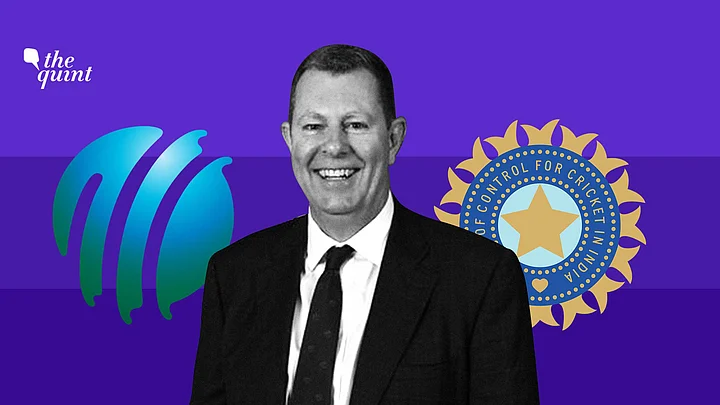Greg John Barclay, a 59-year-old lawyer from New Zealand, is the new ICC Chairman.
He replaces Indian Shashank Manohar – who stepped down after completing two terms at the helm – and was elected after beating Singapore’s Imran Khwaja, who served as the interim ICC chairman in the 6 months it took for the board to organise a new election.
Manohar, while Indian, had famously spearheaded the process of taking down the ‘Big Three’ revenue-share model of the ICC that had been introduced by the ICC boss who preceded him – N Srinivasan.
The ‘Big Three’ system majorly benefitted India, but also Australia and England with the ‘Big Three’ cricket bodies of world cricket getting a big share of the ICC’s revenue.
No Return of ‘Big Three’
Between Barclay and Khwaja, who had both been working with the ICC for some years now, the three biggest (read: most powerful) boards – India, Australia and England – are all believed to have backed the New Zealander for the top job.
The election process involved 16 voting parties and a candidate had to win a minimum two-thirds majority, or 11 votes, to bag the top job. Barclay, after two rounds, managed the magic number with the vote from South Africa sealing the win for him.
In fact, according to ESPNCricinfo, Sourav Ganguly had been ‘working the phones to discuss matters of the game's governance with undecided board members’ of voting nations who were part of the ICC elections.
However, after his election, the new chairman has confirmed the ‘The Big Three’ revenue share model is one the board will not be reintroducing.
"I don't subscribe to the Big Three concept. I know that there were arrangements back in 2014 put in place that you could consider favoured, in some respects, the more powerful three countries. But they were all rolled back quite a few years ago,” he said in a video uploaded by the ICC.
So, Why Vote For Him?
Well, one of the major differentiators between the two men who stood for the elections was that while Khwaja believed in ICC chief executive Manu Sawhney’s plans of staging as many ICC events as possible, Barclay believes in nations playing more bilateral series.
But how does that affect India, you ask?
Well, in October 2019, the ICC approved the addition of an extra world event in the next eight-year revenue cycle that runs from 2023 to 2031. The move was highly criticised by Ganguly in one of his first press conferences after becoming he BCCI president.
And soon after Barclay took over, he told ESPNCricinfo in an interview that last year’s decision was ‘no longer set in stone’ indicating that the call in all likelihood would be pulled back.
“No. We haven’t really built the calendar of events. There’s a lot of conjecture around whether it should be eight events, seven events, six events or whatever. I honestly don’t have a preference. What I want to ensure is that whatever we do end up with gives us optimum cricketing outcomes.”Greg Barclay, ICC Chairman
How Does This Work For India?
Ganguly, along with most all BCCI officials before him, have been of the firm stance that the Indian cricket board deserves a larger share of the ICC’s revenue as the Indian team fills the most stadiums and helps generate the most revenue.
Performance equals payday.
So, while the ICC managed to deal a big blow during Manohar’s tenure, drastically reducing BCCI’s share of world cricket’s revenue, an extra ICC event would mean more finances moving towards the ICC.
Instead, by hosting a bilateral tournament during the weeks that ICC will take for the world event, boards like BCCI, Cricket Australia and England Cricket – ‘The Big Three’ – will manage to generate more revenue for themselves.
Makes sense now, doesn’t it?
Indo-Pak Cricket
Now that’s one issue that’s seen very little intervention from the ICC for the last many years, with India refusing to play bilateral cricket with Pakistan due to the cross-border tension.
Barclay has confirmed that the status quo will not change under him, conceding that he didn’t have the mandate to force the teams to play.
The two nations have not faced off in a Test series for 13 years.
"I would love nothing more than for India and Pakistan to be able to continue cricketing relations as they were previously. I am also enough of a realist to understand that there are geopolitical issues at play here that are way beyond my jurisdiction. I do not think I have a mandate or have an ability to influence outcomes more than that. That is really being done at a level way beyond where we would be operating,” Barclay said in a virtual media interaction.
(At The Quint, we question everything. Play an active role in shaping our journalism by becoming a member today.)
